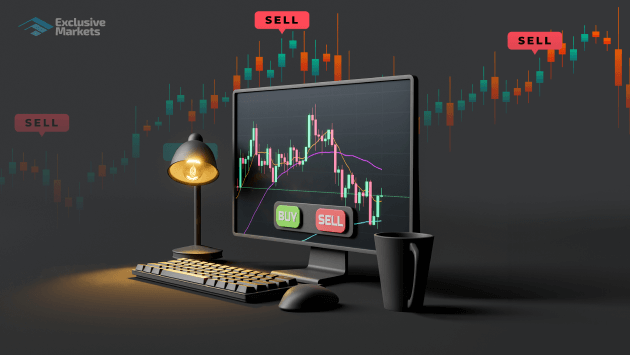
In recent years, the forex market has gained tremendous popularity among traders worldwide, and with this rise in interest, the need for Islamic Forex trading has become increasingly important. For Muslims wishing to engage in trading, it is crucial to operate within the boundaries of Sharia law. In this article, we will explore Islamic Forex trading, its essential principles, and how to navigate the nuances of trading while remaining compliant with Islamic finance. For comprehensive resources and trading platforms, consider visiting islamic forex trading https://tradingarea-ng.com/.
Understanding Islamic Finance Principles
Islamic finance is governed by Sharia law, which emphasizes fairness, transparency, and ethical practices in financial transactions. The key principles of Islamic finance include prohibition of riba (usury or interest), gharar (excessive uncertainty), and maysir (gambling). These principles ensure that profits are generated through legitimate trade and investment rather than exploiting others or engaging in predatory practices.
In essence, Islamic finance seeks to create a just financial system that respects the dignity of all individuals. For Muslims engaging in forex trading, understanding these principles is crucial in selecting the right trading instruments and platforms that comply with Islamic teachings.
What is Islamic Forex Trading?
Islamic Forex trading, also known as halal forex trading, refers to buying and selling currency pairs in a manner that aligns with Sharia law. This means avoiding all forms of interest-based transactions, speculative trading that resembles gambling, and ensuring that all profits derived from trading are ethical and fair.
One major aspect of Islamic Forex trading is the concept of a swap-free account. Forex brokers offering swap-free accounts do so to accommodate Muslim traders. These accounts do not incur overnight interest charges, making them compliant with Sharia law. However, this does not mean that there are no costs involved; brokers may charge a higher spread or fixed fees to compensate for the absence of interest.
Key Features of Islamic Forex Trading
- Swap-Free Accounts: As mentioned, these accounts do not include interest fees, allowing Muslims to trade without violating Sharia principles.
- Transparency: Islamic finance promotes transparency in all transactions, and ethical practices are highly valued in trading.
- Moderate Risk: Traders should avoid excessive speculation and consider only investments that reflect real economic activity.
- Halal Trading Strategies: Traders must adopt strategies that comply with Islamic ethics while ensuring fair profit generation.

Choosing an Islamic Forex Broker
When selecting an Islamic forex broker, it’s essential to consider several factors that ensure the broker operates in accordance with Islamic finance principles. Here are some key considerations:
- Regulation: A reputable broker should be regulated by a recognized financial authority to ensure it operates transparently and ethically.
- Swap-Free Options: Ensure that the broker provides swap-free accounts that do not charge or pay interest on overnight positions.
- Variety of Instruments: Look for brokers that offer a diverse range of currency pairs, commodities, and other financial instruments for trading.
- Quality of Customer Support: Responsive customer service is essential, especially if there are inquiries regarding Islamic trading practices.
What to Avoid in Islamic Forex Trading
While engaging in forex trading, Islamic traders should be cautious and avoid the following practices that could lead to non-compliance with Sharia law:
- Interest Payments: Do not trade with brokers who have swap fees or engage in transactions that involve interest.
- Speculative Trading: Avoid high-risk trading strategies that resemble gambling, as these practices are prohibited in Islam.
- Lack of Transparency: Stay away from brokers that lack clarity regarding their fees, spreads, and trading conditions.
- Investing in Haram Activities: Ensure that the financial instruments traded do not involve businesses or products considered haram (forbidden) in Islam.
Islamic Forex Trading Strategies
For success in Islamic forex trading, it is vital to develop and implement effective trading strategies. Here are a few strategies that can be particularly suited for Muslim traders:
- Carry Trade: While traditional carry trading often involves interest, Muslim traders can engage in carry trades by choosing currency pairs that do not incur interest, focusing on fundamental economic indicators instead.
- Technical Analysis: Rely on technical analysis to make informed decisions about market trends, price movements, and potential trade entries and exits.
- Fundamental Analysis: Understanding economic indicators, political factors, and news events can guide traders in making sound investment decisions without speculative gambling.
- Risk Management: Implement risk control measures such as stop-loss and take-profit orders to minimize potential losses while optimizing profits.
Conclusion
Islamic forex trading presents a viable opportunity for Muslim traders to participate in the forex market while adhering to Sharia principles. By understanding the fundamentals of Islamic finance, selecting the right brokers, and employing appropriate trading strategies, traders can navigate the forex market ethically and profitably. Always remember to conduct thorough research before making any investment decisions to align your trading practices with Islamic teachings.
As the forex market continues to evolve, the importance of Islamic trading practices becomes more pronounced. Ensure that you remain informed, access credible trading resources, and engage with brokers who genuinely respect and incorporate Islamic values into their operations.